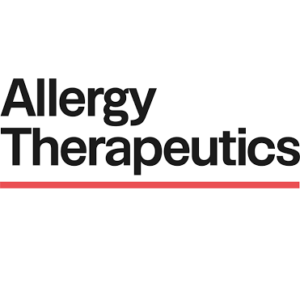Manuel Llobet, CEO at Allergy Therapeutics, stated: “We are surprised by the result, given the strong immune response suggested by the increased immunoglobulin markers in the treatment arm and the substantial symptom improvement we had observed in earlier trials. We will now undertake a comprehensive review of the full dataset to determine our path forward with the investigational product. As a science-driven company we are conscious at Allergy Therapeutics of the challenges regarding subjective measures in allergy field studies. We are committed to overcoming these challenges and bringing this new product to market.”
Allergy Therapeutics plc (LON: AGY), the fully integrated commercial biotechnology company specialising in allergy vaccines, today announced top-line results from the Phase III clinical trial B301of its new adjuvanted birch allergoid product. The trial did not show a statistically significant difference between active and placebo arms in the primary endpoint of a combined symptom medication score averaged over the peak birch pollen season. The safety and tolerability profile was positive and consistent with that observed in previous trials. Importantly, secondary endpoint analyses of immunoglobulin markers including IgG and IgG4 showed highly statistically significant differences between active and placebo, suggesting a strong and sustained immune response to treatment (p <0.0001).
Allergy Therapeutics has extensive experience with other approved and commercialized birch products. Since 2010, the investigational product has undergone two successful Phase II trials where a highly statistically significant 32% reduction in allergic symptoms between the active and placebo was observed. The Group will undertake a review of the full trial dataset to understand any cause for the lack of consistency in the clinical outcomes seen between the studies.
The B301 trial was a multi-centre, double-blind, placebo-controlled study designed to test the efficacy in birch-pollen induced seasonal allergic rhinitis. The European study took place in Germany, Poland, Austria and Sweden with 582 patients over 59 centres being randomised into active and placebo arms, to evaluate the safety and efficacy measured as a reduction in allergic symptoms as determined by the combined symptom medication score.


